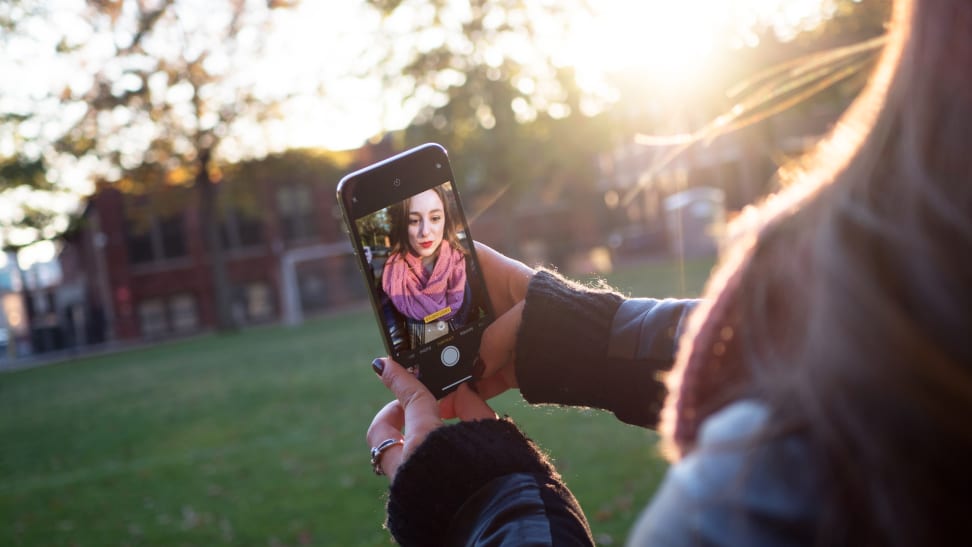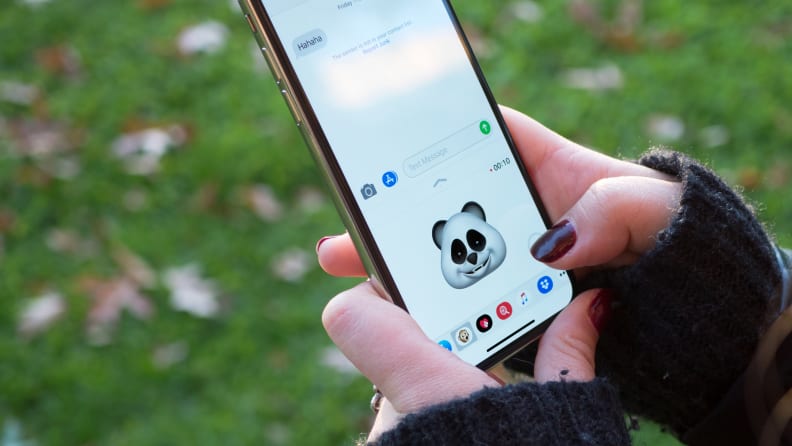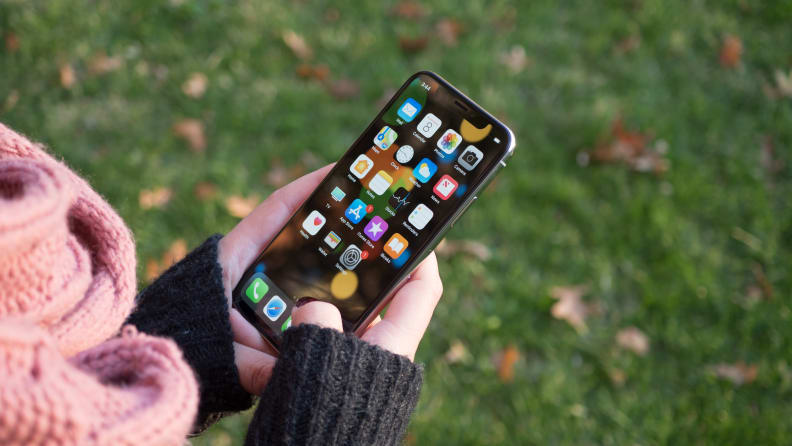5 things the iPhone can do that Android phones can't
There's a reason people love their iPhones
 Credit:
Reviewed.com / Michael Desjardin
Credit:
Reviewed.com / Michael Desjardin
Products are chosen independently by our editors. Purchases made through our links may earn us a commission.
When the time comes to pick out a new smartphone, the first question you'll inevitably ask yourself is this: Should I get an iPhone or an Android phone?
Brand loyalty is a powerful thing, and because just about everyone owns a smartphone these days, most people have some serious opinions about whether iPhones or Android phones get the job done better.
The truth is, choosing between the two is a matter of personal preference—everyone's needs are different, and for some people, the decision comes down to things like compatibility. For example, if you use a host of Apple products, you might decide that an iPhone fits into your lifestyle better. If you've got a Samsung smartwatch, you might opt for a new Samsung Android phone hoping for a more streamlined experience.
With that in mind, here's a handful of reasons some people prefer iPhones to Android phones.

iMessage makes texting fellow iPhone users convenient and fun.
1. iMessage
If I had to choose one thing that keeps me coming back to iPhone despite my increasing frustration with Apple's pricing, it would probably be iMessage.
If you're unfamiliar, this chat client allows Apple users to message one another across multiple devices. Most of the time, when an iPhone user is texting another iPhone user, the messages are being sent via cellular data or WiFi rather than a cell phone carrier.
Since iMessages technically don't qualify as true text messages, iPhone users who don't have unlimited texting rely on iMessage to communicate without dipping into their monthly allotment of text messages.
iMessage also offers all sorts of additional features, including the ability to see when your fellow iPhone-using friend or family member is in the process of typing a response.
2. iOS apps are typically prioritized over their Android counterparts.
On average, developers take longer to develop their apps for Android than they do for iOS. This is why iPhone users typically get the first crack at new apps (and corresponding software updates).
The reasons behind this are pretty straightforward. First, software on Apple's App Store are more financially viable than software on Google Play. Simply put, it's just a better business decision to prioritize development for iOS over Android.
Second, due to the sheer number of Android smartphones available, it's also a lot easier to develop stable, polished versions of smartphone apps for iOS. Even the most popular apps around (Facebook, Instagram, Twitter) will often roll out updates to iPhone users ahead of Android users.
3. iPhones are more secure than Android phones
According to a 2014 report by Forbes, 97% of mobile malware at the time could be found on Android.
And although the subsequent years have brought about positive developments in the world of smartphone security, the fact remains that the vast majority of the world's smartphone users are using Android devices, which means there's a much higher incentive to develop malware for the Android operating system.
Another reason iOS is better-protected against security breaches is the App Store itself, which tightly regulated by Apple. Android's open-source model—though incredibly flexible and liberating in its own right—is much easier for nefarious actors to exploit.

New and updated software tends to hit the Apple Store before it reaches Android phones.
4. Smoother updates
This one is pretty simple: When Apple rolls out software updates, it only needs to account for a handful of iPhones at a time. Not only is the optimization process much more streamlined when engineers only need to worry about a small number of devices, but the updates are released all at once.
By contrast, major updates to the Android operating system are slow to roll out, since the number of would-be compatible devices is staggering by comparison. In other words, there are several smartphone manufacturers (Samsung, LG, and Huawei, for example) all making Android phones, but only one company—Apple—making iPhones.
And since so many companies are responsible for optimizing the latest Android updates for their phones, some Android users often find themselves waiting months for those updates to trickle down to their phone.
5. The Apple ecosystem is exceptional
This is a big one for a lot of people. Whether you love Apple or hate Apple, it's hard to deny that the Apple ecosystem—though not without its flaws—is one of the best in the game.
MacBooks, iPads, iPhones, and Apple Watches all link together relatively seamlessly. And, since all of these devices are governed by their user's Apple ID, things like files, contacts, and App Store purchases can be easily accessed at any given time.
For some people, this walled garden is restrictive. For others—especially the not-so-tech-savvy—the simplicity is something to be celebrated.


